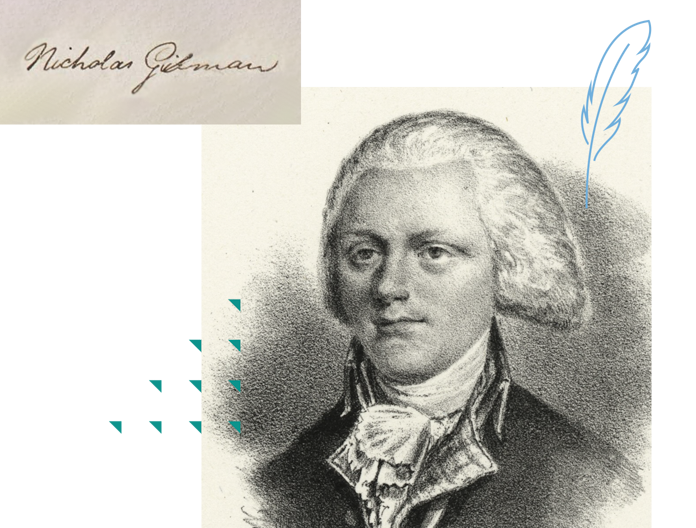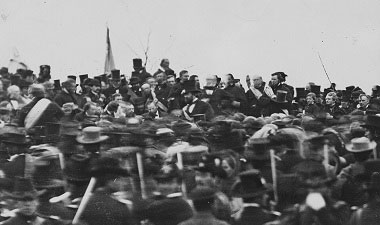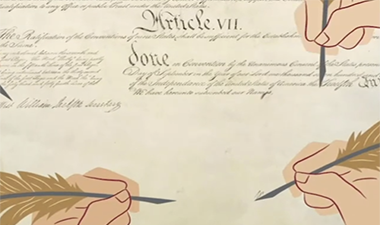Summary
Nicholas Gilman attended the Constitutional Convention and served on the committee that adopted an electoral college to choose the president.
Nicholas Gilman | Signer of the Constitution
2:46
Biography
Nicholas Gilman was born into a prominent New Hampshire family in 1755. Gilman did not go to college, but he was educated locally and soon began to work in his father’s general store. He supported independence from Britain, and when the war began, he enlisted in the New Hampshire branch of the Continental Army. He served until the end of the war with the rank of captain.
After returning to civilian life, he worked once again in his father’s store and became involved in politics. In 1786, New Hampshire sent him to the Continental Congress. The following year, at the age of 32, he joined John Langdon, Jr. as New Hampshire’s delegates to the Constitutional Convention. William Pierce declared him “modest, genteel, and sensible” and found that, although Gilman was neither brilliant or striking in his character, there was something worthy in the young man. Gilman did not arrive in Philadelphia until July 21, and by that time much of the thorniest issues had been resolved. Not known as a skilled debater, Gilman was content to remain silent during the discussions. He did, however, serve on the Committee on Postponed Matters which adopted James Wilson’s proposal for an electoral college to choose the president. He also played a role in persuading the Confederation Congress to accept the Constitution and send it to state ratifying conventions. In a letter to a relative, Gilman described the Constitution as a product of bargain and compromise, and he praised it, saying that “notwithstanding its imperfections, on the adoption of it depends (in my feeble judgement) whether we shall become a respectable nation, or a people torn to pieces by intestine commotions, and rendered contemptible for ages.”
Gilman served in the first U.S. House of Representatives for 8 years, and was twice a presidential elector. He also served in his state’s legislature throughout the early years of the 19th century. Although he had signed the Constitution as a nationalist, and served in the House as a Federalist, by 1802 he had begun to identify as a Jeffersonian Republican. When he returned to Congress as a Senator in 1804, it was as a Republican. He died while traveling home from Washington D.C. in 1814. He was 58 years old. An obituary published in New Hampshire’s The Constitutionalist and Weekly Magazine declared, “His remains were respectfully entombed on Tuesday last, attended by a large number of citizens, and the Society of the Cincinnati. In the death of Mr Gilman the public have suffered a great loss, and his relatives and friends an irreparable breach.”








